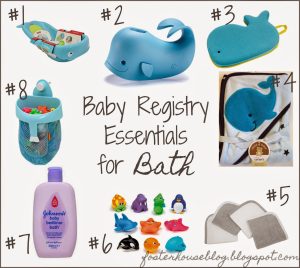Every time we talk about the parent-child relationship, we find that not everyone is close to their parents. Some say that they have a normal relationship with their parents, neither close nor distant, and some even want to stay away from their parents.
What should we do if we want our children to still have a close relationship with us when they grow up? There are three directions in which we can work hard and share them with you.
01
Accompany in the moment, get along with each other immersively
When getting along with children, there should be a period of time that is exclusive to the child and the adult is completely immersed in the child’s world. In doing so, children can feel that their parents value and care about them. This feeling that children gain is an important foundation for a high-quality parent-child relationship.
Here are some examples of present-day, immersive parent-child companionship:
✓ Accept more and criticize less
For example, when children are playing, do not instruct them to do this or that all the time, but allow them to do it in their own way. For example, if a child wants to imagine the building blocks as small people, then follow the child’s idea and treat the building blocks as small people. We don’t need to stress to our children the “correct” way to play or play.
✓ Really see what children are doing, encourage and discuss more
No need to judge
For example, since children regard building blocks as little people, we can talk to them: Is this little blue building block man a truck driver? Is the red brick man the ice cream girl? Immerse yourself in your child’s world and start conversations based on your child’s imagination.
✓ Willing to listen and understand children’s true feelings
For example, children chatter to us about a lot of things that happened in kindergarten. In essence, they may just want to express that they like their classmates and teachers in kindergarten, or that they are very happy in kindergarten.
✓ See the child and read the child’s body language
Sometimes children don’t like to express, or are not good at expressing. For example, older children in adolescence often wander around the kitchen repeatedly. At this time, they may just want to be close to their mother and be with her. At this time, you may not need to say a lot of words. Let the children help do something together, or give them a hug, which is very warm and warm.
Accompanying children in the moment and getting along with them immersively is actually essentially led by the children, and we follow the children’s rhythm. for example:
Let the child take the lead in how to play. We can watch the child and make necessary responses to the child, or follow the child’s instructions. This way and practice of getting along is especially friendly to young children.
Support your child’s ideas. For example, if a 2-3 year old child says he wants to make an egg pancake, we can actually accompany him to beat the eggs, knead the dough, and make an egg pancake together.
When children express their opinions, it is actually an important way for us to understand their thoughts and feelings. In the process, it doesn’t matter whether the child’s thoughts are consistent with ours. What’s important is that we understand what the child thinks.
02
Quality family time
A quality parent-child relationship is always built on quality parent-child time. Only when parents and children are together seriously can they better understand each other’s experiences, thoughts, feelings, interests and hobbies.
Caring about, paying attention to, and understanding children can make children feel that they are valued and cherished. This is the cornerstone of the parent-child relationship.
High-quality parent-child companionship time is not limited to time and place, which means that there is no need to deliberately set a time or have special rituals, and it can be done anytime and anywhere. for example,
Talk and laugh together when giving the child a bath; chat with older children when sitting in the car together. All these fragmented times can allow parents and children to convey positive messages and make them feel happy, relaxed and happy when getting along with each other. In the process of getting along, they can talk and laugh with each other, have extended contact, and can also use positive body language such as hugs.
When sharing quality family time, try to minimize interruptions or distractions. This means putting away your phone, turning off your computer, etc. In doing so, the children can clearly see that their parents are accompanying them wholeheartedly.
What needs to be mentioned here is that because of busy life and work, it may not be possible to spend a lot of time with your children. If this is the case, it is also recommended not to give up completely, but to try to have a little time that belongs only to the child. Even if it is not every day, it is okay, even if it is only a few dozen minutes each time, it is okay. Little things add up, and every bit of effort will be remembered in the children’s hearts.
03
trust and respect
Any quality relationship, including parent-child relationships, is inseparable from trust and respect.
In your baby’s first few years, it’s important to build trust. Once babies develop trust with us, they will feel safe and know that their needs can be met by someone they trust.
All this sense of trust allows children to explore the world more confidently. As children grow older, trust and respect become a two-way affair between children and parents.
➤ How to build trust and respect with your children, you can try:
When our children need our help, care and support, we are there. For young children, when they fall, we help them up; when adolescent children attend a friend’s party and want us to pick them up, we will pick them up. All these “little things” can help children slowly build trust in their parents and know that their parents will always be there when they need them.
Only by keeping your promises and doing what you say can make your children believe what their parents say. For example, if you promise your child to go to an amusement park on the weekend, then go.
Understand the child better, accept the child, care for and respect the child, instead of trying to change the child and let the child be molded according to what we think is the “perfect” child.
For example, if a child likes football, there is no need to force the child to play tennis. Just watch the child play football and applaud the child.
Showing respect for children’s feelings and opinions can encourage children to share them with us.
If a child expresses a point of view that is different from ours, we just keep listening and don’t be too busy judging, criticizing or even getting angry. Be willing to listen to your children, even if their opinions are different from ours. Doing so can make your children feel that their ideas can be heard, and parents will help them when they encounter difficulties or confusion.
Acknowledge that the parent-child relationship is dynamic and constantly evolving. After all, children are growing up and their thoughts, concepts, etc. will change. For example, when babies are young, babies like us to play with them in the park, but when they grow up, they may not want us to accompany them all the time.
Establish some clear and firm house rules. Only with these family rules can every member of the family know how to get along with each other, know what is allowed and what is not allowed, and stay consistent. It will not be obviously OK today but not tomorrow.
Fixed family rules allow children to clearly see that they will be treated consistently, and as long as they are within the rules, there will be no problems.
There is a lifelong “entanglement” between parents and children. A good, high-quality parent-child relationship is precious to both parents and children, and is worth the efforts of all parents and children to create together.




